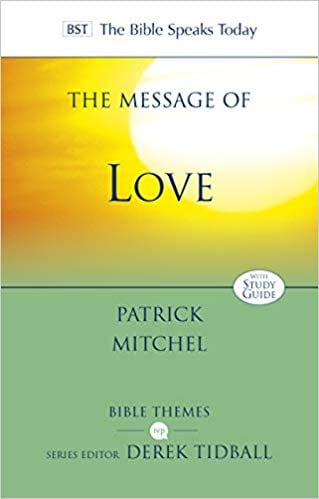BEN: One of the big ticket issues one confronts in Paul is the notion of the bondage of sin. It leads to questions like— if before Christ everyone was in the bondage of sin, what were all those commandments about in the OT, and why were there actually people called righteous back then and back there? Was God grading on a curve in the OT, but not so much now since we have the renovating presence of the Spirit? I agree with Sanders that there is the grace of God to be found in the OT, but the question is, what effect did it actually have on God’s people. Was the good godly law inherently frustrating– it could tell them what to do, but couldn’t enable them to do it? Why then does Paul say in a remarkable passing remark in Philippians that in regard to a righteousness that came from the Mosaic Law, he was blameless!!!! Really? This sounds like no bondage of sin in Paul’s case. Or is he simply saying, I was not a law breaker, without implying his obedience to the positive requirements of love etc. was perfect? What do you think?
PATRICK: Nice easy question Ben! It zones in the vexed question of continuity and discontinuity within Paul’s theology of righteousness when compared to the OT. Sanders’s understandable reaction to forms of Protestant discontinuity, sometimes verging on anti-Semitism, led to him to so emphasise continuity that he concluded Paul’s only real problem with Judaism was that ‘it was not Christianity’. But this won’t do. While Paul is not setting up ‘failed’ Jewish legalism up against Christian grace, something profoundly discontinuous has happened. His own life is an example of radical change. I see it as Paul re-reading the Scriptures backwards in light of Christ, telling a restructured historical-redemptive story. ‘Faith’ was always the key to justification / righteousness long before the law existed (the story of Abraham in Romans and Galatians). Nor is the law opposed to the promises of God. Its fundamental problem is that it could never justify or give life (only faith in Christ and the regenerating work of the Spirit does that). So in this sense, yes, the life under the law in the OT is temporary and partial. Those who rely on observing it are under a curse (Gal 3:10). In terms of how were faithful believing Jews in the OT seen by God, I think we need to come back to texts like Deut 6:4-5. Wholehearted love for God leads to faithful lives of justice that please God. People can only live according to the light that they have received.
On Philippians, given Paul’s strong theology of sin as a power, I take his reference to being blameless as referring to his pre-conversion life – he was exemplary in keeping the law.
BEN: You quote our old friend John Stott positively as follows (P. 143): “the love of Christ is broad enough to encompass all mankind…long enough to last for eternity, deep enough to reach the most degraded sinner, and high enough to exalt him to heaven”. I totally agree with this and take very seriously John 3.16— God loves the whole of fallen humanity (the cosmos organized against him). All this being true, it does not make sense to me at all to then also say, God has chosen and pre-determined a select number of human beings to be saved, culled out of a mass of unredeemed humanity. To me this denies the very nature of a statement like John 3.16, not least because love has to be freely given and freely received. It can’t be manipulated, compelled, or predetermined for that matter. Election of a person or a people for certain historical purposes is one thing, salvation is another. Christ, as M. Barth said about Ephesians is the Elect One, and yet Christ didn’t need to be saved— these two things must then be distinguished. Believers are saved by grace and through faith, by responding to the Gospel. They become elect only by being in the Elect One, Christ, and that again transpires by grace and through faith. What is your take on these things?
PATRICK: Yes, the study of biblical love does throw up a lot of big theological questions doesn’t’ it? I think some later systematic categories of thinking about election run the risk of imposing an artificial grid on the Bible and making it say more than it does – with unfortunate results. Like you I find it difficult to square texts like John 3:16 with God’s foreordination of multitudes to eternal judgment.
Ultimately this question comes back to the character of God. As I read the Bible, divine love is the great central thread to the whole story. The OT insists that God abounds in love. Hosea is a particularly moving example. God the betrayed lover woos back his unfaithful bride and refuses to end their marriage although he had every right to. Their love is not compelled or enforced – he is not a bullying husband. So, yes, the OT is a very particular story of God’s unbreakable covenant love for Israel, that but story is not an end in itself. Behind his election of Israel is his reconciling love for all. The big shift in the NT is how that ‘narrow lens’ is then widened to embrace all who respond in faith and repentance to the gospel of the Messiah, the Lord of all. No greater example of divine love is possible imagine than the cross of Christ.













